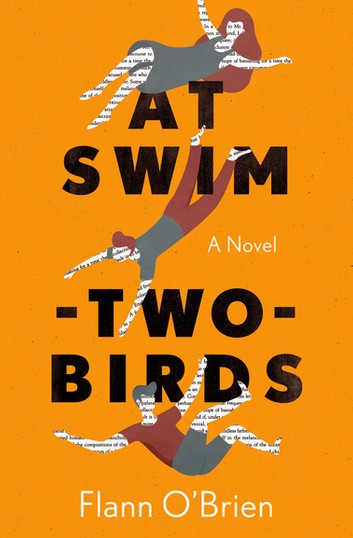What do you think?
Rate this book


239 pages, Paperback
First published March 13, 1939
Having placed in my mouth sufficient bread for three minutes’ chewing, I withdrew my powers of sensual perception and retired into the privacy of my mind, my eyes and face assuming a vacant and preoccupied expression. I reflected on the subject of my spare-time literary activities. One beginning and one ending for a book was a thing I did not agree with. A good book may have three openings entirely dissimilar and inter-related only in the prescience of the author, or for that matter one hundred times as many endings.
He is a great man that never gets out of bed, he said. He spends the days and nights reading books and occasionally he writes one. He makes his characters live with him in his house. Nobody knows whether they are there at all or whether it is all imagination.
“When things go wrong and will not come right, Though you do the best you can, When life looks black as the hour of night - A PINT OF PLAIN IS YOUR ONLY MAN.”
“When money's tight and is hard to get And your horse has also ran, When all you have is a heap of debt - A PINT OF PLAIN IS YOUR ONLY MAN.”
“When health is bad and your heart feels strange, And your face is pale and wan, When doctors say that you need a change, A PINT OF PLAIN IS YOUR ONLY MAN.”
“When food is scarce and your larder bare And no rashers grease your pan, When hunger grows as your meals are rare - A PINT OF PLAIN IS YOUR ONLY MAN”
“In time of trouble and lousy strife, You have still got a darlint plan, You still can turn to a brighter life - A PINT OF PLAIN IS YOUR ONLY MAN!”

Characters should be interchangeable as between one book and another. The entire corpus of existing literature should be regarded as a limbo from which discerning authors could draw their characters as required, creating only when they failed to find a suitable existing puppet. The modern novel should be largely a work of reference. Most authors spend their time saying what has been said before—usually said much better.At Swim-Two-Birds is … really hard to describe. At surface level, it’s about an unnamed college student who to the great annoyance of his uncle would rather sleep in, drink, and hang out with friends. You know, like college students do. The student has been writing a novel about a bad writer, Dermot Trellis, who believes in simply borrowing characters from other works of fiction, mythology, and folklore to populate his novel. These characters, who live together with Dermot at the Red Swan Hotel, are unhappy with the way Dermot treats them: making them cruel, failing to explain things to them, forgetting about them and leaving them twisting in the wind. So they conspire to rebel against him, including writing their own book in which they are able to torture Dermot and have their revenge.
…
As a matter of fact, said the Good Fairy, I do not understand two words of what you have said and I do not know what you are talking about. Do you know how many subordinate clauses you used in that last oration of yours, Sir?

But which of us can hope to probe with questioning finger the dim thoughts that flit in a fool's head.I will admit, I liked The Third Policeman better. I will also admit to holding this as the better book, one with recognizable traces of TTP amidst so much more. There, alongside the author's singular wit and superb hand at mixing the pragmatic with the absurd until neither can tell which is the other, is performance, is parody, is a supreme consideration of reality's dance with fiction both foolish and all too wise. The book is a train with a sober first stop and a mad tomfoolery increase in speed with every page and nested trope, but the ending is well worth the grim hanging on for dear life.
When things go wrong and will not come right,
Though you do the best you can,
When life looks black as the hour of night -
A PINT OF PLAIN IS YOUR ONLY MAN.
When money's tight and hard to get
And your horse has also ran,
When all you have is a heap of debt -
A PINT OF PLAIN IS YOUR ONLY MAN.
When health is bad and your heart feels strange,
And your face is pale and wan,
When doctors say you need a change,
A PINT OF PLAIN IS YOUR ONLY MAN.
When food is scarce and your larder bare
And no rashers grease your pan,
When hunger grows as your meals are rare -
A PINT OF PLAIN IS YOUR ONLY MAN.
In time of trouble and lousy strife,
You have still got a darlint plan
You still can turn to a brighter life -
A PINT OF PLAIN IS YOUR ONLY MAN.